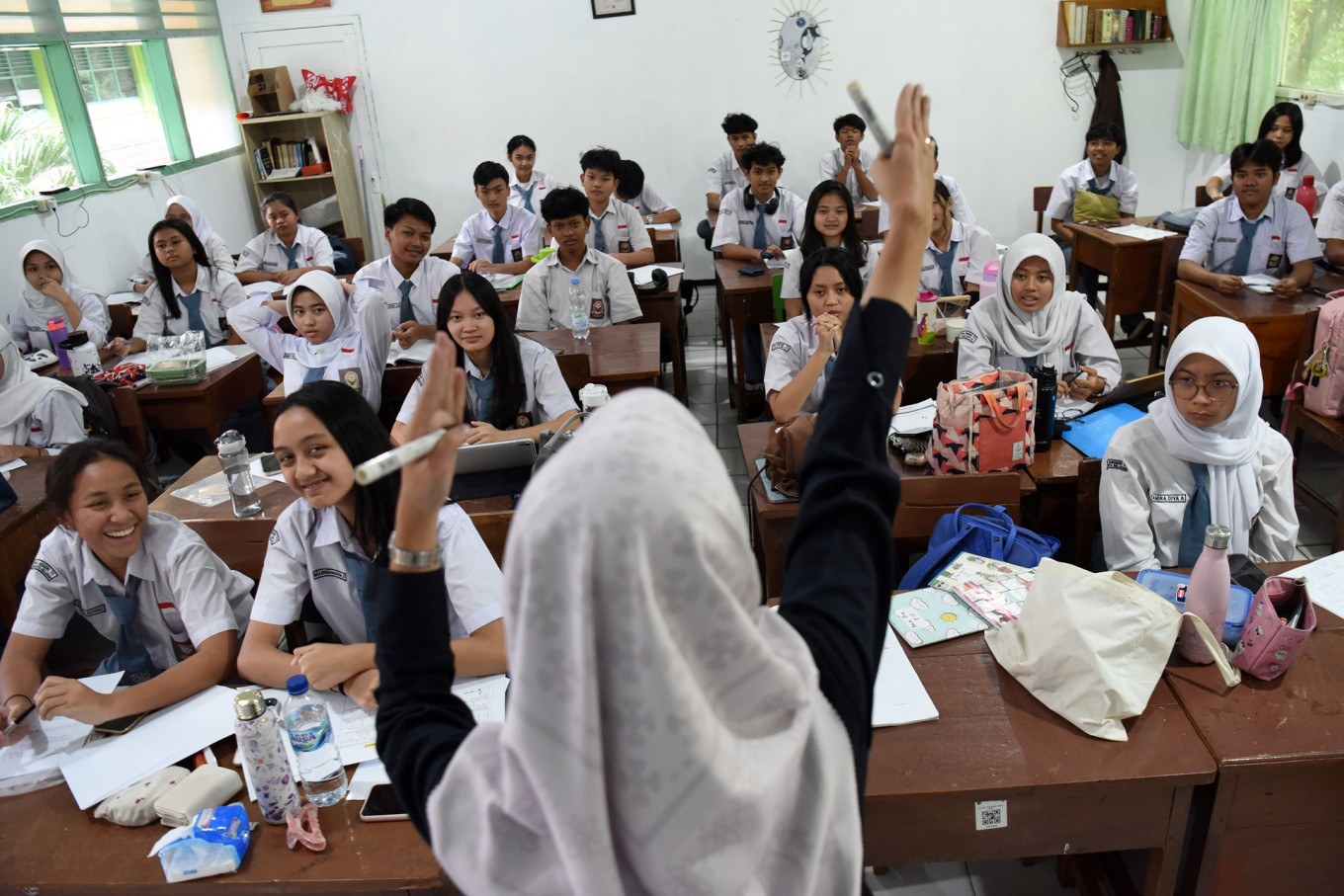Popular Reads
Top Results
Can't find what you're looking for?
View all search resultsPopular Reads
Top Results
Can't find what you're looking for?
View all search resultsFrom Abu Dhabi to Jakarta: Influential middle powers shaping the world’s dynamics
Influential middle powers, countries like Indonesia, South Africa, the United Arab Emirates and others balance regional leadership with global engagement.
Change text size
Gift Premium Articles
to Anyone
L
ong before fiber optic cables stitched the planet together, the waters of the Malacca Strait were humming with life. Spices, texts and ideas flowed through this channel, carried by galleons, traders and scholars.
Even the famed 14th-century traveller Ibn Battuta passed through Sumatra in 1345, marveling at the cultural diversity and sophistication he found there. In his travelogue Rihla, he described the richness of societies shaped by centuries of exchange.
Indonesia sat at this intersection, a maritime bridge between East and West where cultures mingled and worldviews coexisted. Today, the sails have turned digital, but the impulse to connect, to exchange and to collaborate remains as vital as ever.
This year marks the 80th anniversary of the United Nations, a milestone recalling eight decades since the world vowed to pursue cooperation following a period of profound global conflict. Yet, despite remarkable advances, global fragmentation persists. Technological upheaval, climate uncertainty and shifting geopolitical power now weave a complex web of challenges that often outpace traditional diplomacy.
Amid this complexity, what stands out is the rise of influential middle powers, countries like Indonesia, South Africa, the United Arab Emirates and others that balance regional leadership with global engagement. These nations bring nuanced perspectives, shaped by histories of diversity and adaptation. They avoid extremes, instead offering pragmatic pathways toward cooperation grounded in shared human values.
At the heart of this leadership lies education. Today more than ever, societies require systems that nurture not only skills but also ethics, empathy and critical thinking.
For example, the Indonesian government reports that nearly 60 percent of its population is under 30, revealing a vast youthful reservoir eager to shape the future. Similarly, the United Arab Emirates has launched ambitious initiatives such as the National Artificial Intelligence Strategy 2031, focusing not only on technological advancement but also on promoting responsible and ethical AI development.
South Africa complements these efforts with investments in social innovation hubs and youth entrepreneurship programs that empower young people to creatively tackle societal challenges with sustainable solutions.
Across these countries, programs integrating technology with social responsibility, such as coding classes that include ethical AI and civic engagement, are emerging as powerful game changers.
Youth are no longer mere beneficiaries but active agents shaping the future. Across Southeast Asia, the Gulf and Africa, young innovators drive change through technology incubators, social enterprises and digital collaboration platforms. These youth-led initiatives harness creativity and expertise to address pressing challenges in health, environment and digital governance.
Influential middle powers have a unique opportunity to amplify these energies by creating structured platforms where young leaders can cross borders, exchange ideas, and co-design practical, forward-thinking solutions.
This call for collaboration is no longer simply an ethical appeal. It has become a strategic necessity. In 2024, the World Economic Forum reported that over 70 percent of global risks are interconnected across environmental, technological and societal spheres. No single country can tackle these challenges alone. Those able to master complexity by weaving tradition with innovation and trust building will shape the future.
The Higher Committee of Human Fraternity embodies this vision. Established following the signing of the Abu Dhabi Document on Human Fraternity in 2019 by the late Pope Francis and the Grand Imam of Al Azhar Ahmed Al-Tayeb, it champions coexistence through dialogue, education and collaborative action.
On July 29-30, it will host the International Conference on Human Fraternity in Jakarta, in partnership with the Indonesian International Islamic University. The event will unite thought leaders, youth representatives, educators and policymakers to explore how ethics, education and cross-cultural collaboration can foster more just and inclusive societies.
From Abu Dhabi to Jakarta, influential middle powers are actively shaping the world’s international dynamics. Their leadership is vital not only in grand halls but also in classrooms, communities and digital spaces where the future is truly forged.
And fittingly, this journey unfolds where East once met West, at the historic gateway of the Malacca Strait. From these waters, where ancient trade routes first bound the world together, new digital pathways now emerge.
The human continuum of connection continues, stretching from the archipelago to algorithms, from classrooms to global forums, charting a course toward a more cooperative and resilient world.
---
The writer is a senior advisor at the Higher Committee of Human Fraternity.











